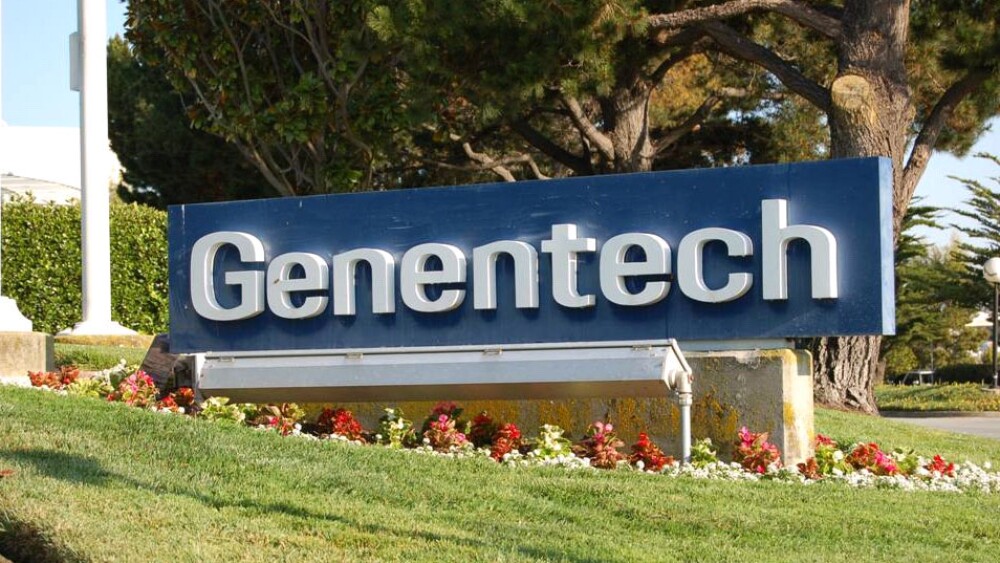October 11, 2017
By Mark Terry, BioSpace.com Breaking News Staff
South San Francisco – Genentech , a Roche company, is growing and growing, it seems. The company was required by the City of South San Francisco to update its current Master Plan after 10 years. Although the company has not finalized or submitted the update, it’s possible it may almost double its facilities in South San Francisco, with 9 million square feet of space and a total of 30,000 employees. However, the plans are just that—projections—and have not been initiated or finalized. When the company does begin this process, it will be a planning exercise, providing the company and the city a forward-looking framework for long-term potential future development of its South San Francisco campus.
This comes only a few months after its June announcement that it has started operating a second cell-culture facility at its Vacaville, Calif. manufacturing center, located about 55 miles from San Francisco. The new facility is part of a 500,000-square-foot expansion that costs almost $300 million in Solano County.
This launch came shortly after the European Medicines Agency (EMA) approved a subdermal treatment for blood cancers. The other facility at the site, called CCP1, already manufactures an intravenous formulation of Rituxan called Rituxan IV.
The new Rituxan SC formulation is also being manufactured for use in the U.S. Rituxan IV is the standard of care for B-cell non-Hodgkin’s lymphoma. Rituxan Hycela (basically the SC version) was approved by the U.S. Food and Drug Administration (FDA) on June 23, 2017. It was approved for previously untreated and relapsed or refractory follicular lymphoma, previously untreated diffuse large B-cell lymphoma (DLBCL), and previously untreated and previously treated chronic lymphocytic leukemia (CLL). The different between it and Rutixan is a combination with hyaluronidase human, an enzyme that allows the drug to be delivered under the skin.
The addition of the Vacaville plant is related to a significant number of expected approvals. Tony Pankau, vice president and general manager at the Vacaville facility, told the North Bay Business Journal in June, “Strategic decisions made about the timelines for starting up CCP2 were connected to an overarching strategy based on demand forecasts and production efficiencies across the entire Genentech/Roche global network. The exciting news is that as production demand has increased for our pipeline of more than 70 investigational medicines, CCP2 will now be able to provide us with much needed additional capacity.”
It’s not all good news for Genentech. Last week Amgen filed a new lawsuit against the company in a California district court over Amgen’s recently-approved Avastin (bevacizumab) biosimilar, Mvasi. The suit claims that Mvasi has not infringed and won’t infringe on Genentech’s 27 patents for Avastin.
Genentech claims that the 27 patents would be infringed by Amgen if it produces Mvasi in the U.S., and that is has already infringed on the patents by producing bevacizumab.
The FDA approved Mvasi for Amgen and its partner Allergan on Sept. 14, 2017. All 17 members of the FDA’s Oncologic Drugs Advisory Committee voted in July to recommend the biosimilar for all of the indications, citing “clean and clear” evidence and “tight confidence intervals.” The approval in September was the first time the FDA approved a biosimilar for oncology indications.
In 2016, Avastin brought in $6.75 billion in worldwide sales for Genentech.





